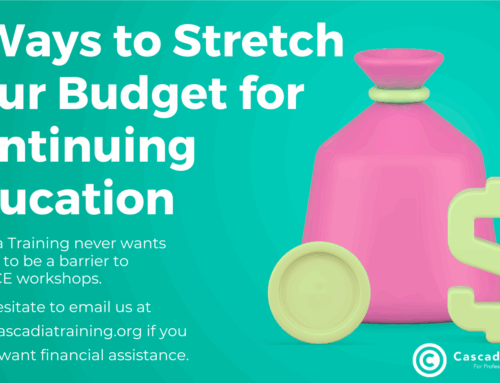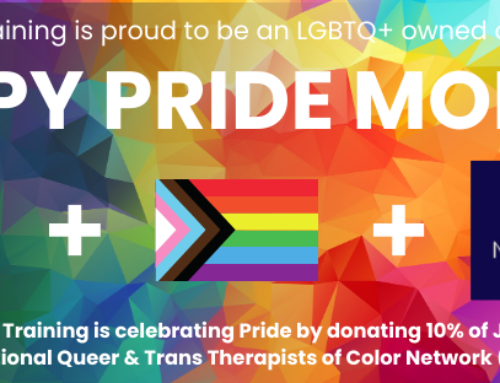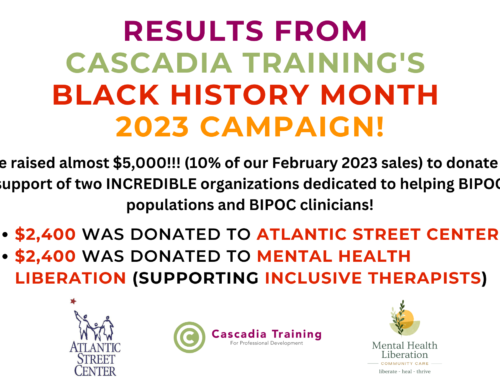Cascadia is holding a workshop on Youth Suicide on October 18th. Register now: https://cascadia-training.com/course/youth-and-adult-suicide-recognition-assessment-and-treatment-of-suicidality-10-18-19/
Suicide: The Conversation We Should Have With Our Kids
From Nationwide Children’s blog – original blogpost here
A conversation about depression or suicide is going to be difficult for parents, but you can have it without putting a young person at risk and it can be very helpful. Parents, family members and teachers could save a life of a child by identifying kids before they have a crisis or go years without treatment. I am not saying this conversation is going to be easy, but I do think it is essential.
At the Center for Suicide Prevention and Research at Nationwide Children’s Hospital, we work closely with schools and members of our community to start these conversations. A few things to consider that could make a big difference for a young person:
- Do not wait for a crisis. Many times, we respond when there is a crisis, but part of preventing suicide and being aware of mental health issues is finding very specific ways to be present with your child. That can be at the dinner table or during car rides.
- Check in regularly and ask your child directly how they are doing and if they have ever had thoughts about ending their life.
- Look for changes in mood or behavior that might be a warning sign that something is wrong. For example, if the child seems really down, they stop doing things they normally enjoy, or you notice significant changes in eating or sleeping.
- Ask directly about suicidal thoughts. Even if their child is not struggling with suicide or depression, parents can model for their child that it is good to talk about serious emotional concerns with trusted adults and important to reach out to friends to have these conversations, too.
One of the best things we can do is give our young people the power to talk about mental health issues and topics as challenging as suicide without shutting the door. Even if your child is doing well, this is a powerful opportunity to help your child see it is okay to be emotionally open and could help them talk openly with friends.
If your child asks, “What do I do if a friend is struggling with suicide?” Encourage your child to tell their friend that they care about them and acknowledge that they are hurting. After their friend knows they are being listened to and supported, the next step is to ask specifically if they are thinking about suicide or have tried to kill themselves. This should be done in a compassionate way free of judgement. If they say “yes” or even “I’m not sure,” a trusted adult should be told right away. Never leave someone alone if they are showing warning signs of suicide.
I work with youth who are struggling every day, but I know that this is not hopeless. There are many ways loved ones can help youth get support when they need it. This involves timely treatment, building connections, helping other people know what to say when a family member or friend is struggling and having a safety plan in place to help get through a crisis.
If you or someone you know is thinking about suicide, contact the National Suicide Prevention Lifeline at 1-800-273-TALK (1-800-273-8255), or contact the Crisis Text Line by texting “START” to 741-741.
(Reposted from https://www.nationwidechildrens.org/family-resources-education/700childrens/2018/08/suicide-conversation-with-kids)






